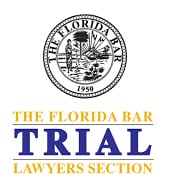You often hear the terms personal injury and bodily injury when someone is in an accident. Many people make the mistake of interchanging the two phrases, but they have entirely different meanings. Accident victims must be aware of the difference to have a successful claim.
If you suffered injuries due to negligence, reach out to a Florida personal injury attorney. After learning more about the accident and your injuries, they can determine whether you should pursue a personal injury or bodily injury case.
What Is Personal Injury?
Personal injury is a civil law element where one person files a claim against another for causing them harm. Essentially, if someone fails to meet a reasonable duty of care and you are injured in the process, you might be able to file a personal injury claim against them that may result in financial compensation. Some examples of personal injury claims in Florida include car, bicycle, and slip and fall accidents. However, to secure financial compensation, an attorney will have to prove the other party was negligent.
Elements of Negligence
Your attorney must prove the four elements of negligence to receive compensation for your losses. They are:
- The defendant owed a duty of care,
- They failed to meet that duty,
- Their actions caused your injuries, and
- Your damages are a direct result of the defendant’s actions.
The duty of care a defendant owes varies depending on the accident. For example, drivers should not drink and drive or text behind the wheel. Retail stores should have dry floor surfaces with no debris or obstructions that can cause a slip and fall. If floors are wet, employees should take every reasonable precaution to notify customers of the potential hazard.
Compensation in a Personal Injury Case
The damages you receive in a personal injury case depend on what your injuries are. After reviewing your claim, and an attorney may be able to secure compensation for your economic and non-economic losses, such as:
- Medical bills
- Lost wages
- Property damage
- Pain and suffering
What Is Bodily Injury?
While personal injury is a type of legal claim, bodily injury refers to the specific physical damages someone sustains because of another person in criminal court cases, such as a broken arm or fractured spine. However, it can also be an aspect of insurance policies and claims. For example, say you’re in a car accident. Instead of taking the other driver to court, you may be able to claim medical coverage through the driver’s insurance policy.
Compensation in a Bodily Injury Case
When you suffer a bodily injury, you may be entitled to receive compensation for out-of-pocket expenses for the specific injury, such as X-rays, therapy costs, and transportation to the hospital. You might also be able to receive funds for future losses, such as future loss of income, therapy, or permanent disability and impairment.
Do Drivers Need Bodily Injury Insurance in South Florida?
Bodily injury liability (BIL) may pay for any injuries or death of another person in an accident. However, only taxis are required to have BIL in Florida. They must have at least $125,000 per person and $250,000 per accident. Additionally, drivers must have $50,000 in property damage liability.
Personal vehicles do not need to have BIL, but drivers may add it through their insurance provider.
What Is the Statute of Limitation to File a Claim in Florida?
Victims have four years from the accident date to file a personal injury claim against the negligent party. There may be exceptions to extend this limitation, such as if the injured person was in a coma. When accident victims fail to bring forth a claim within the window, they risk a court denying the request.
Speak to an Experienced South Florida Attorney Today
The difference between personal and bodily injury may be confusing, so contact the Baker Legal Team. Led by Attorney Robert Baker, our attorneys have the skill and experience needed to handle these cases. When you partner with Attorney Baker and his team, you can be confident that they will do everything possible to secure a fair settlement. Call (561) 320-0000 or complete our contact form to schedule a free consultation.











